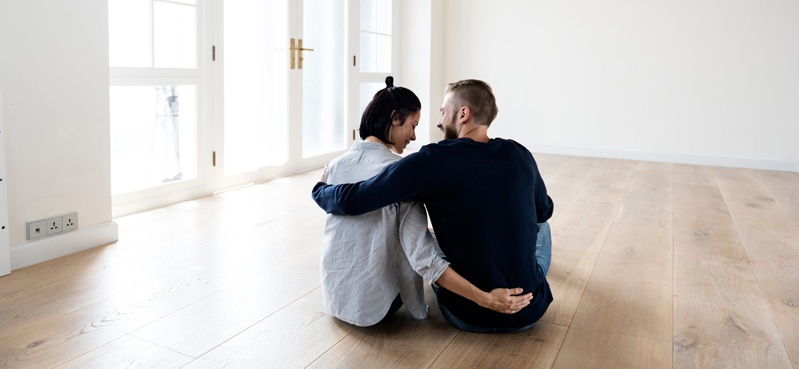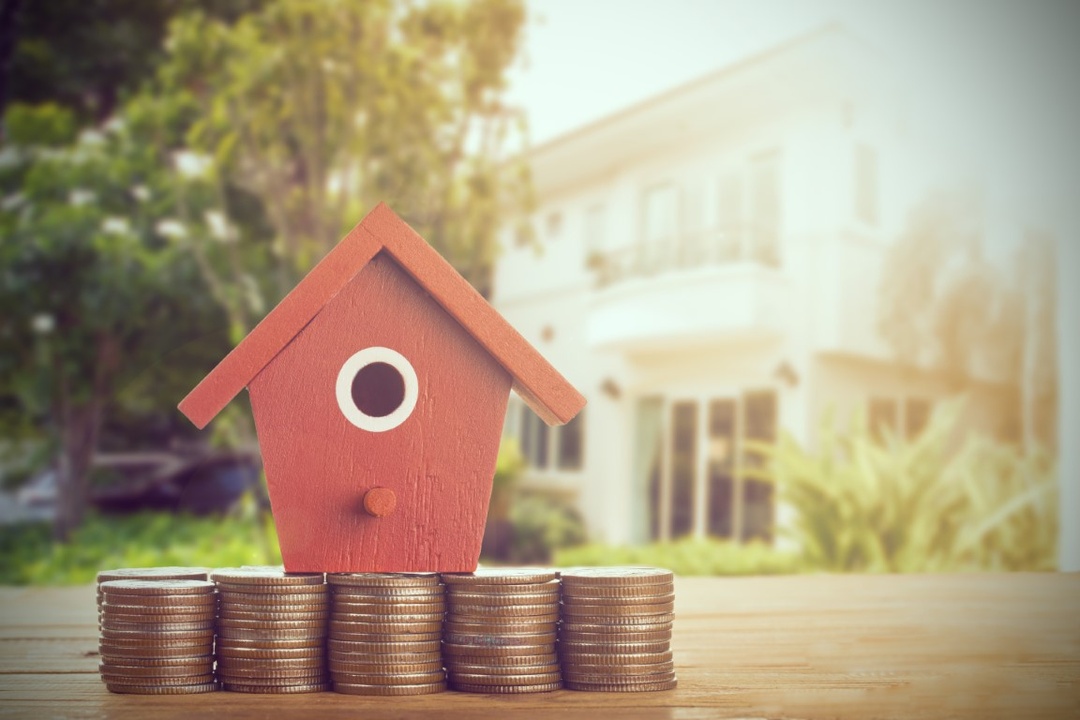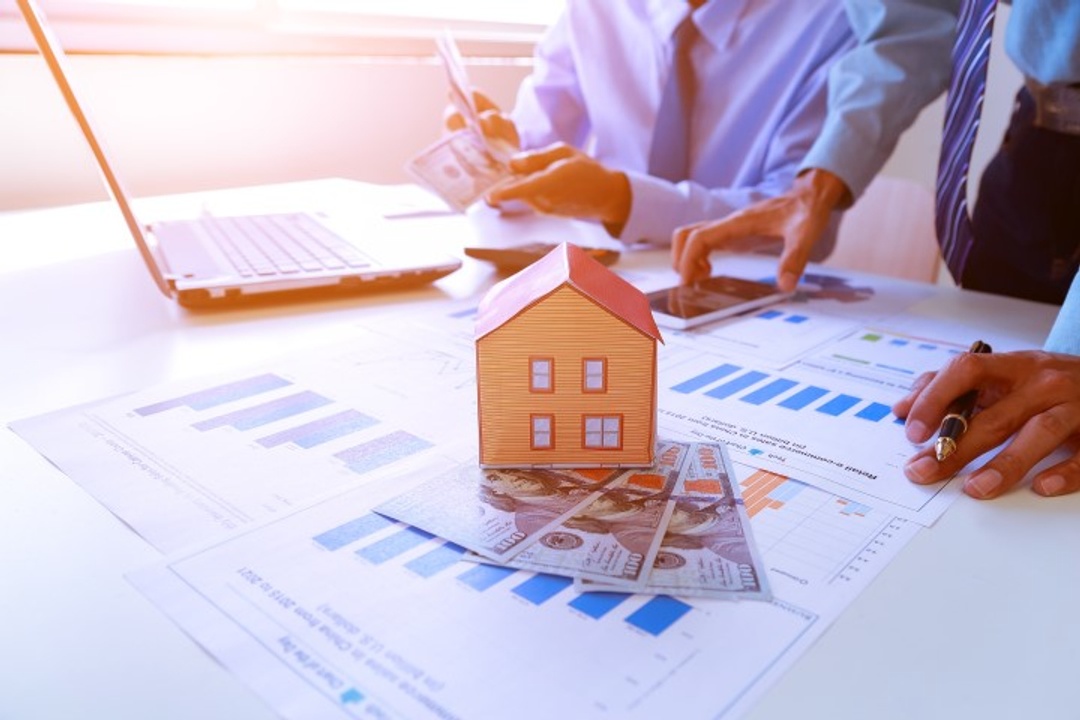
With around 88 percent of Americans hoping to buy a home instead of renting in the near future, the question of whether buying a house is a good investment is a tricky one.
For many Americans, owning a home is an essential part of the American dream— it provides several economic benefits such as the ability to accumulate wealth and access credit by building home equity, reduce housing costs through the mortgage interest deduction, and gain long-term savings over the cost of renting.
While there are numerous advantages to owning a home, it's not all about sitting on your porch sipping lemonade and admiring your little slice of heaven. Before buying a house, you should ask yourself, is buying a house worth it? This article will dissect the advantages and disadvantages of buying a home before you leap in with both feet— and a portion of your life savings.

Is a Home an Investment?
According to surveys, homebuyers see their property as a solid investment. According to a Bankrate survey issued in July, real estate will rank second behind stocks as the greatest way to invest over a ten-year period in 2020. Real estate ranked first in Bankrate's 2019 report.
According to the National Association of Realtors' 2020 Profile of Home Buyers and Sellers, 83 percent of purchasers consider a home purchase to be a "sound financial investment."
The notion that your primary property might be an investment stems from the fact that, historically, real estate values rise. We all know someone—perhaps a parent or grandparent—who bought their property for less than $100,000, and today it's worth several millions of dollars.
While most financial experts encourage homeownership as an investment vehicle compared to stocks and bonds, the sole reason is the safety associated with the real estate industry. However, the returns aren't as significant compared to other investment vehicles.
But guess what? It doesn't matter. Whether or not the value of your property outpaces inflation, the choice to purchase a home should be more personal than financial.

How Do You Know If Buying a House Is Right For You?
While buying a home is an excellent investment and a solid foundation for developing wealth, it has several downsides. Here are some essential questions to consider when attempting to answer the question: Is buying a house worth it?
Do you want to stay in the same area long-term?
Are you looking to buy in a location where you plan to live for at least five years? Bringing up a family? Are you getting older? Ask yourself: Do I picture myself living in this house for more than five years in this location? Will my employment be in this area for the next two, three, or four years?
A house is a significant long-term investment. According to the National Association of Realtors, the average length of homeownership in the United States is 13 years, with the average tenure increasing over the last decade.
If you are only in an area for a few years, assess if it makes financial sense to buy by factoring in closing costs, which can vary between 3% and 4% of the home's sales price, and how much renting would cost. You may also have to deal with the payment of capital gains tax if you sell a home you didn't live in for at least two years.
You can use a rent vs. buy calculator to compare the cost of renting vs. buying a home in your area to determine whether or not purchasing a home is more cost-effective than renting.
Are you comfortable managing debt?
People who have a track record of managing their debt are more likely to receive better terms on a home loan.
Paying your monthly bills on time and carefully utilizing your available credit will result in a higher credit score. The higher your credit score, the less risky you appear to a lender, qualifying you for a reduced interest rate. According to FICO, a decent credit score is 700. However, a score of 740 or better is required for the best loan terms.
It may be tough to secure a mortgage if you have no credit history, sometimes known as a thin file. Consider a low-limit credit card or a secured loan to begin creating a responsible credit history.
Lenders will also consider your debt-to-income ratio in addition to your credit score. A DTI ratio compares your total obligations (including your new mortgage). Lenders use it to assess your capacity to repay the money you borrow.
First, check your debt to income (DTI) ratio by dividing your monthly debt payments by your gross monthly income. Darren Robertson of Northern Virginia Home Pro explains that, “A DTI of 36% or less is ideal and will help you get the best mortgage interest rate possible. If you have a high debt to income ratio, you may want to pay down some of your debt before moving forward with a home purchase.”

Do you have a stable income?
This may seem obvious, but determining how safe your income is can be deceptively tricky, especially given the economic implications of the COVID-19 virus. You should not only be confident that your income will be solid for at least the next few years, but you should also be able to demonstrate a track record of consistent employment in the past.
As proof of income, lenders will require at least two years of tax returns or pay stubs. Lenders also want to see that the money you'll spend for a down payment has been put in a bank account for at least 60 days. It informs them that you have the funds to finance your mortgage. If you rely on gifts from family and friends to help with a down payment, make sure you receive them well before applying for a mortgage and depositing them.
Do you know how much you can afford to spend on a home?
Knowing how much house you can afford entails understanding the size of your monthly payments and closing expenses, insurance, and taxes. Then, compare your current housing expenditures to a new mortgage payment, whether you're a homeowner trying to upgrade or a renter searching for your first house.
When considering affordability, most financial gurus use the 28/36 rule. You should spend no more than 28% of your gross monthly income on mortgage payments and 36% on total debt.

When Is A House A Good Investment?
According to conventional wisdom, purchasing a home is a good investment since it allows you to create wealth as the house appreciates, and you don't have to pay rent to a landlord. When deciding whether buying a house is worth it, you must consider the following points.
Your Monthly Payments Build Home Equity.
The difference between the value of your home and the outstanding mortgage balance is your home equity. When you pay rent, you accumulate equity for the owner of the house you rent.
However, when you own a property, you make mortgage payments that include principal and interest. The principal component reduces your loan total each month, which means you're growing equity without even realizing it.
You Can Save By Cutting Rent Out Of Your Budget
One of the most significant benefits of owning a home is saving money on rent each month. When you pay rent every month, that money is gone for good. In contrast, putting that money toward your mortgage increases your net worth.
Statistics suggest that when rent is factored in, your property's annual return on investment is between 8% and 10%. This rate of return is comparable to what you would earn if you invested in the stock market. Of course, this will not be true in every case, and your return on investment will be heavily influenced by the city you live in.
You Own An Asset That May Increase In Value
According to data from the National Association of Realtors (NAR), the median national existing-home sales price increased 17.2 percent from March 2020 to March 2021. That equates to around $48,400 in additional equity in just one year.
As the value of your home rises, so does your equity, allowing you to sell for a profit. You may reinvest the additional funds in a new home as well as an investment property. You might also use your home to generate income right now by renting it out or house hacking.

You'll Likely Have More Square Footage
Homeowners often have greater square footage than renters, making it easier to raise a family. The average new apartment in the United States is 941 square feet, which is 5% smaller than ten years ago.
The typical new home in the United States is 2,500 square feet. So, if you need more space and room for a growing family, investing in homeownership may be all you need to achieve it.
You Benefit From Homeownership Tax Deductions
Owning a home provides you with several tax benefits, the most notable of which is a deduction for the interest and property tax part of your mortgage.
This deduction is especially effective for offsetting the initial financial impact of acquiring a home. In the early years of ownership, you're essentially just paying down the interest on your mortgage rather than the principal. You can also write off any mortgage points on your loan during the first year of ownership, resulting in significant savings depending on how many points you claim.
If you decide to refinance your property after you've built up enough equity in it, you can also take out a home equity line of credit, which is tax-deductible.
More Control Over Day-To-Day Housing-Related Costs
Unless you change the terms of your mortgage, you know the monthly base cost of living in your house, both now and in the future. This provides more stability than rent, which is unpredictable and can (and frequently does) alter over time. And cost control extends even more profoundly.
As a tenant, you have no choice in whether your landlord provides you with energy-efficient appliances that can save you hundreds of dollars per year. Still, you must pay the electricity bill nonetheless. As a homeowner, you can make better short- and long-term financial decisions tailored to your financial objectives and skills.
While this is unlikely to help you save for your future like building equity does, it should give you peace of mind to know that you're saving money wherever you can.

When Is A House Not A Good Investment?
For many people, purchasing a house is a fantastic decision that may provide them with a sense of security and peace of mind. But that doesn't mean that you're investing when you buy a house. Let's take a look at some of the reasons why a house may not be a good investment.
Additional Costs Associated with Owning a Home
The most acceptable advantage of renting is that you are not responsible for maintenance; the landlord is. However, if you own the house, you are the landlord.
Routine house upkeep costs the average homeowner 1% to 4% of their home's worth each year. And that doesn't include expensive one-time fixes like roof replacement.
And maintenance isn't the only expense associated with owning. There are also expensive taxes, which seem to rise every year. Taxes range from 0.3 percent of a home's worth to 2.21 percent of a home's value, depending on where you live.
Other costs to consider when purchasing a property include:
* Insurance
* Homeowners Association (HOA) dues
* Mortgage insurance
* Utility deposits
* Utility payments (when you can't switch providers)
Don't forget about all of the hidden costs of buying a home—closing costs, inspection fees, loan origination fees, etc.
Appreciation Isn't Everything
Those who consider homeownership an investment frequently mention appreciation as one of their primary selling points. In reality, it’s a bit of a gamble. There is always the possibility that appreciation can stagnate, or the market could crash.
Once inflation is factored in, real estate values have experienced a drastic increase over the last 50 years. A home's appreciation may surpass inflation for short periods, but it's not enough of a guarantee.
Appreciation has a significant risk: depreciation. In an economic downturn, property prices may plummet dramatically, making them less of an investment and more of a burden.
The objective of owning a home as an investment is that you will be able to benefit from its sale. However, in an economic downturn, your investment may lose its value in a matter of months and take years to recover.

It Takes Time To Break Even
Most people do not consider all of the additional costs of buying a property. For example, new homeowners must pay closing fees, typically between 3% and 6% of the total loan amount.
So, if your house is worth $250,000, closing expenses could be an extra $7,500 if they are on the lower end of this scale. If they are in the upper range, you may have to spend $15,000 on closing expenses.
After paying closing expenses, most homeowners require four years to break even on their property. If you'd want to discover more about how long it will take to break even on your mortgage, you may use this buy vs. rent calculator.
Timing The Market Is Difficult
Many people assume that homes are a wise investment because they will continue to rise in value. And that is true in a stable economy with high market demand.
However, timing the market and selling your house in a way that optimizes profit is tough. To make it work, you'd have to buy a property in a "buyer's market," which implies there are more sellers than buyers.
You're more likely to obtain a better deal on the house in a buyer's market. But, in a seller's market, where there are more sellers than buyers, you'd want to sell your home.
In a seller's market, you can command a greater price for your house and may even be able to spark a bidding war, driving up the price. However, getting both scenarios just perfect is quite challenging. As a result, many folks will either sell too soon or sell too late.
It Can Block Up Your Cash Flow
If you buy a house with the intention of making it your primary residence, your mortgage or monthly payment could tie up your cash flow as an investment.
Real estate investors buy a house to rent and use the rent to pay down the mortgage. They'll charge a higher rent than the monthly mortgage payment if they're wise. That is, they have a positive cash flow.
When you invest a significant amount of your money into your primary residence, it might reduce your entire cash flow to a trickle. However, if you instead invested the downpayment and mortgage payment in a diversified index fund, you would likely get a 6-8 percent return and begin earning passive income.

Should You Buy a House?
Purchasing a property comes with its share of disadvantages and advantages. While homeownership offers several financial and personal benefits in the long run, this is only possible if you do your homework and:
* Recognize the gravity of this financial commitment.
* Apply for the right mortgage financing with excellent terms
* Have a steady source of money and stable employment.
* Can afford the monthly payments, taxes, and upkeep of homeownership.
Buying a house should be about fulfilling your demands for a bigger space for your family, community, and family needs, and secondarily for adding value or resale. However, homeownership may not be as lucrative as stocks, mutual funds, or exchange-traded funds in terms of investment.
What's the key takeaway? Buying a home to live in may not be the greatest decision if you are only searching for investment potential. However, if you need a place to live, a house may be the best investment you'll ever make. More importantly, deciding to buy a home should be done after carefully analyzing your finances, personal goals, and housing needs.










